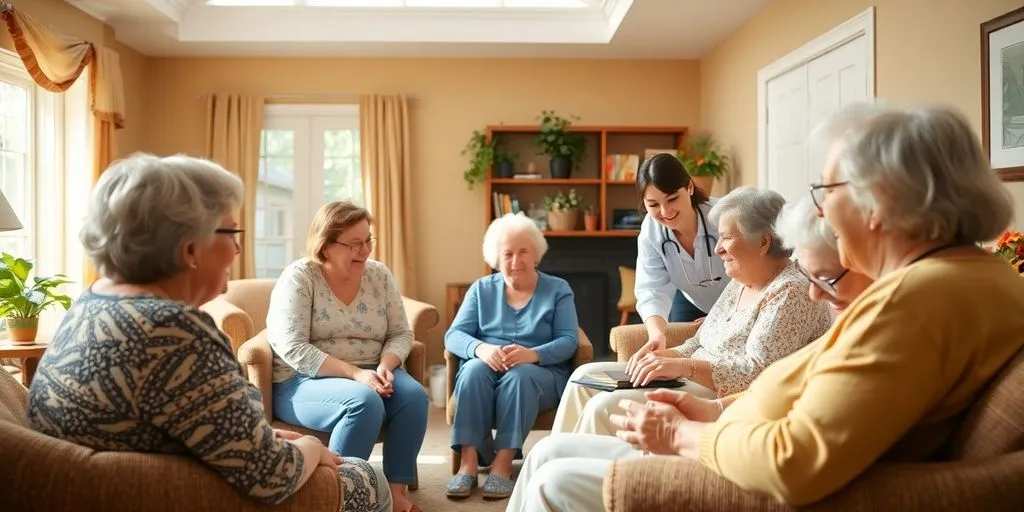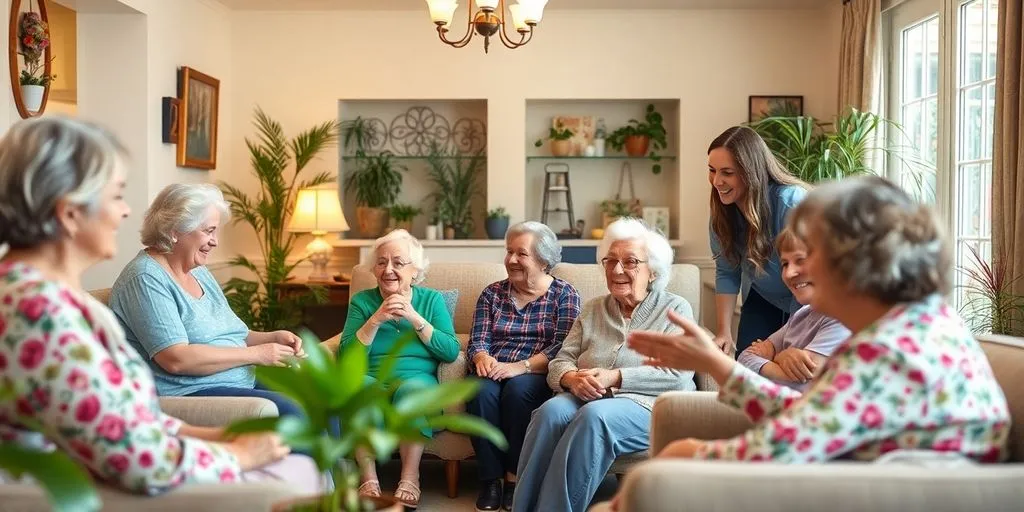December 12, 2024

Running a group home can be both rewarding and challenging. To enhance resident care and improve group home efficiency, it is essential to adopt effective strategies. This article presents straightforward methods that can help administrators streamline operations while ensuring the well-being of residents. By focusing on key areas such as staff management, technology use, and continuous improvement, group homes can thrive in their mission to provide quality care.

Setting a solid base is crucial for the success of any group home. Clear goals and objectives help guide the team and ensure everyone is on the same page. Here are some key steps to consider:
A strong foundation is built on clear communication and shared objectives, which can lead to a more effective and harmonious environment for both staff and residents.
By focusing on these strategies, group homes can create a supportive atmosphere that enhances resident care and staff satisfaction. This approach not only improves efficiency but also aligns with the principles of supporting the adult social care front door and thriving in residential care.
In today's world, using technology is essential for improving staffing efficiency in healthcare. By implementing advanced scheduling systems, group homes can streamline their operations and reduce errors. Here are some key benefits of leveraging technology:
Group homes must adhere to various state regulations regarding staffing. This includes:
Finding the right balance between staffing levels and resident needs is crucial. Here are some strategies to achieve this:
Regularly reviewing staffing practises can lead to better outcomes for both residents and staff, ensuring a more efficient operation overall.
Utilising surveillance technology can significantly enhance the way group homes monitor residents. By installing cameras in common areas, staff can keep an eye on residents without needing to be physically present at all times. This not only improves safety but also reduces the need for additional staff, leading to cost savings.
Digital tools play a crucial role in tracking the health of residents. These tools can help in:
By using these tools, group homes can ensure that residents receive timely care and attention.
While technology is essential, it is important to maintain a balance with human interaction. Residents benefit from personal connections, so staff should:
Embracing technology in group homes can lead to better care outcomes, but it should always complement the human touch that is vital in caregiving.
Improving energy efficiency in group homes is essential for reducing costs and enhancing comfort for both residents and staff. By focusing on energy efficiency, homes can save money and create a better living environment.
Investing in energy efficiency not only reduces costs but also contributes to a healthier environment for everyone involved.
By implementing these strategies, group homes can significantly enhance their energy efficiency, leading to better care for residents and a more sustainable operation overall.
Promoting meaningful activities is essential for enhancing the quality of life in group homes. Engaging residents in activities that resonate with their interests can lead to improved mental and emotional wellbeing. Here are some effective strategies:
Access to healthcare services is crucial for maintaining the health of residents. Ensuring that residents receive the necessary support can significantly impact their overall wellbeing. Consider the following:
Building strong relationships within the group home can create a supportive environment. Positive interactions can lead to a sense of belonging and community. Here are some ways to foster these relationships:
A supportive environment is key to enhancing the quality of life for residents. By focusing on meaningful activities, health access, and positive relationships, group homes can create a nurturing atmosphere that promotes wellbeing.

Collecting feedback is essential for understanding how well your group home is performing. Engaging with residents, their families, and other stakeholders can provide valuable insights. Here are some effective methods to gather feedback:
Training is crucial for ensuring that staff are equipped to provide the best care possible. Regular training sessions can help staff stay updated on best practises and improve their skills. Consider the following:
Performance reviews are an important tool for assessing staff effectiveness and identifying areas for growth. Here’s how to make them more impactful:
Continuous improvement is a journey, not a destination. By actively seeking feedback and investing in training, group homes can create a supportive environment that benefits both residents and staff.
In summary, enhancing the efficiency of group homes is vital for providing better care to residents. By setting clear goals, managing staff effectively, and using technology wisely, group homes can improve their operations. Regular feedback from both staff and residents can help identify areas for improvement. Remember, small changes can lead to significant benefits. By focusing on these strategies, group homes can create a more supportive environment for everyone involved.
The main goals include setting clear targets, optimising staff management, and enhancing resident care.
Technology can streamline staff scheduling, ensure compliance with regulations, and improve communication among team members.
Digital tools like health tracking apps and surveillance systems can monitor residents' wellbeing and activities.
Improving energy efficiency helps reduce costs and creates a more comfortable living environment for residents.
Gathering feedback from residents and staff can highlight areas for improvement and guide training and development.
Engaging residents in meaningful activities, social interactions, and access to healthcare services can greatly enhance their quality of life.